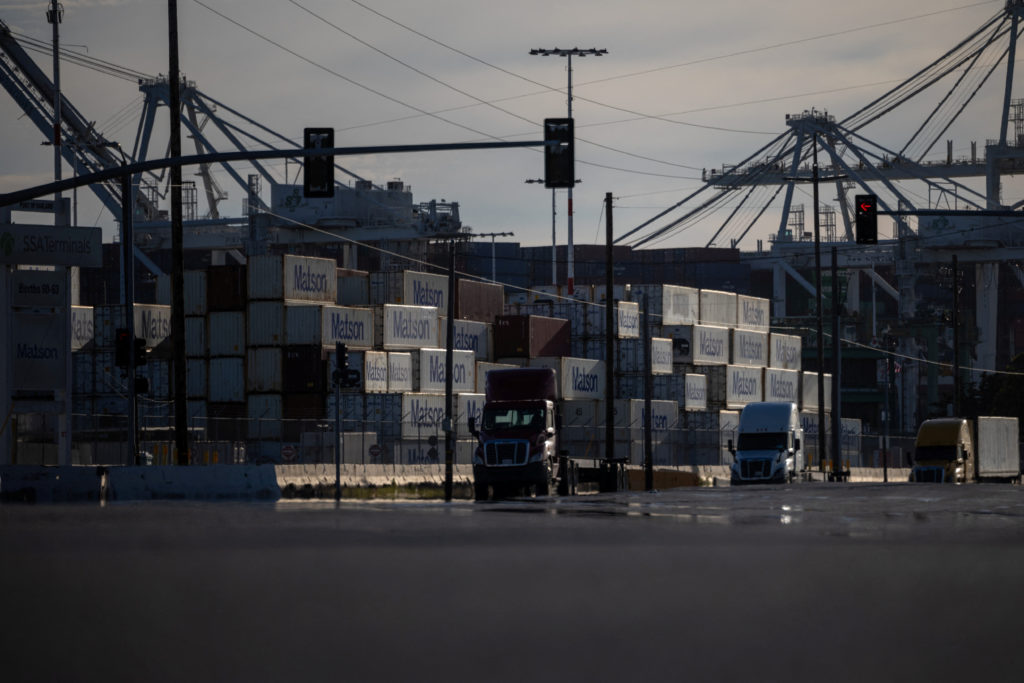China's Fierce Retaliation: 125% Tariff on US Goods – A New Chapter in the Trade War?
China has unleashed a wave of retaliatory tariffs on US goods, escalating the already tense trade war between the world's two largest economies. The move, announced late last week, imposes a staggering 125% tariff on a range of US products, marking a significant escalation in the ongoing dispute. This isn't just a symbolic gesture; it's a direct and powerful blow aimed at key US industries. But what does this mean for global markets and the future of US-China relations?
Which US Goods are Affected?
The newly imposed tariffs target a diverse array of American exports, impacting several crucial sectors. While the full list is extensive, some key targets include:
- Agricultural Products: American soybeans, a major export to China, are heavily affected. This will likely exacerbate existing concerns within the US farming community already struggling with market volatility.
- Manufactured Goods: Various manufactured goods, ranging from automobiles and electronics to textiles and chemicals, are also subject to the hefty 125% tariff.
- Technology Products: While not explicitly detailed in initial announcements, there's speculation that certain technology products crucial to US companies may also face increased tariffs. This sector has been a central point of contention in the broader trade conflict.
This broad targeting suggests China is aiming to inflict maximum economic pain on the US, forcing a renegotiation of trade terms on more favorable grounds.
The Implications for Global Markets
The implications of China's aggressive move are far-reaching and potentially destabilizing for global markets.
- Increased Inflation: The higher tariffs are likely to lead to increased prices for consumers in both countries, fueling inflation and potentially impacting global economic growth.
- Supply Chain Disruptions: Companies relying on US-China trade will face significant disruptions to their supply chains, leading to production delays and increased costs.
- Geopolitical Tensions: The escalation further exacerbates the already strained geopolitical relationship between the US and China, raising concerns about a broader trade war that could engulf other nations.
What's Next? Will the US Respond?
The US response to China's latest move is crucial in determining the future trajectory of this escalating trade conflict. Several options are available to the US administration, including:
- Further Retaliatory Tariffs: A tit-for-tat response could further escalate the conflict, leading to a cycle of retaliatory tariffs that could harm both economies.
- Negotiations: The US might attempt to re-engage in negotiations with China, seeking a compromise that reduces tariffs and eases trade tensions.
- WTO Dispute Settlement: The US could file a complaint with the World Trade Organization (WTO), seeking a ruling against China's trade practices.
The coming weeks will be critical in determining which path the two nations choose. The potential for further escalation remains high, highlighting the need for a cautious and strategic approach by both sides.
Analyzing the Long-Term Effects
The long-term consequences of this trade dispute are difficult to predict with certainty. However, several key factors will play a significant role:
- Consumer Behavior: How consumers in both countries respond to price increases will greatly influence the success or failure of the tariffs as a strategic tool.
- Global Economic Conditions: The broader global economic climate will also influence the impact of the trade war, potentially exacerbating existing challenges or creating new ones.
- Political Will: The willingness of both governments to compromise and find a mutually acceptable solution will be crucial in determining a resolution.
In Conclusion: China's imposition of a 125% tariff on US goods is a significant escalation in the ongoing trade war. The impact will be felt globally, and the coming weeks and months will be crucial in determining the future course of this complex and potentially damaging conflict. The need for diplomatic solutions and a focus on de-escalation is paramount to avoid further damaging consequences for the global economy.

